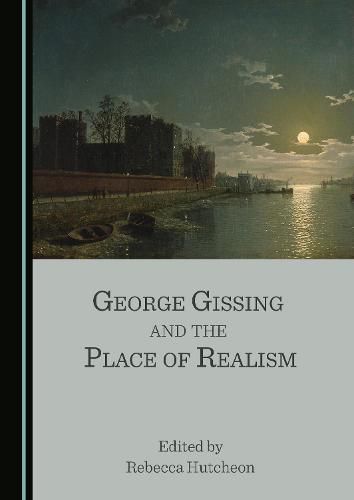Readings Newsletter
Become a Readings Member to make your shopping experience even easier.
Sign in or sign up for free!
You’re not far away from qualifying for FREE standard shipping within Australia
You’ve qualified for FREE standard shipping within Australia
The cart is loading…






This collection explores Gissing’s place in the narrative of fin-de-siecle literature. Together, chapters here theorise how late-Victorian spatial and generic norms are confronted, explored and performed in Gissing’s works. In addition to presenting new readings of the major novels and introducing readers to lesser-known works, the collection advocates Gissing’s importance as a journalist, short story, and travel writer. It also recognises Gissing as a central proponent in the late-Victorian realism debate. The book, like today’s nineteenth-century studies, is interdisciplinary. It includes familiar interpretive approaches-biographical, historicist, and comparative-together with fresh perspectives informed by ecocriticism, materiality, and cultural performance. In addition, it is markedly comparative in scope. Gissing is read alongside familiar authors like Dickens, Ruskin, and Hardy, but also, and more unusually, Nietzsche, Besant, Freud and Foucault. Collectively, these chapters illustrate that Gissing, though attentive to contemporary issues, is neither uncomplicatedly realist nor are his writings uncomplicated historical records of place.
$9.00 standard shipping within Australia
FREE standard shipping within Australia for orders over $100.00
Express & International shipping calculated at checkout
This collection explores Gissing’s place in the narrative of fin-de-siecle literature. Together, chapters here theorise how late-Victorian spatial and generic norms are confronted, explored and performed in Gissing’s works. In addition to presenting new readings of the major novels and introducing readers to lesser-known works, the collection advocates Gissing’s importance as a journalist, short story, and travel writer. It also recognises Gissing as a central proponent in the late-Victorian realism debate. The book, like today’s nineteenth-century studies, is interdisciplinary. It includes familiar interpretive approaches-biographical, historicist, and comparative-together with fresh perspectives informed by ecocriticism, materiality, and cultural performance. In addition, it is markedly comparative in scope. Gissing is read alongside familiar authors like Dickens, Ruskin, and Hardy, but also, and more unusually, Nietzsche, Besant, Freud and Foucault. Collectively, these chapters illustrate that Gissing, though attentive to contemporary issues, is neither uncomplicatedly realist nor are his writings uncomplicated historical records of place.